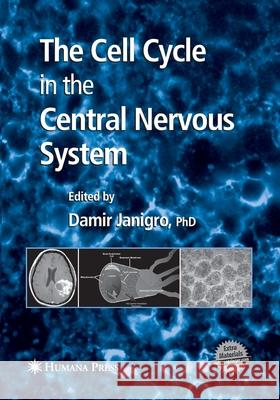The Cell Cycle in the Central Nervous System » książka
topmenu
The Cell Cycle in the Central Nervous System
ISBN-13: 9781493963348 / Angielski / Miękka / 2016 / 563 str.
Kategorie BISAC:
Wydawca:
Humana Press
Seria wydawnicza:
Język:
Angielski
ISBN-13:
9781493963348
Rok wydania:
2016
Wydanie:
Softcover Repri
Ilość stron:
563
Waga:
0.99 kg
Wymiary:
25.4 x 17.78 x 3.0
Oprawa:
Miękka
Wolumenów:
01
Dodatkowe informacje:
Wydanie ilustrowane











